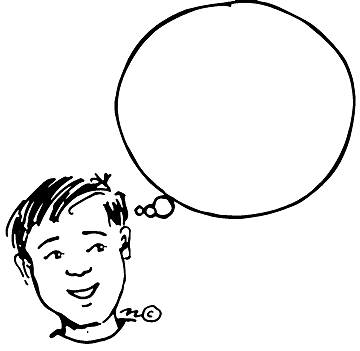Symbols
Symbol, without explaining what it’s doing, gives us a picture (an image) of a human situation, a situation of the mind, the psyche—mental, not actual.
What of It
Though the world of projects knocks
at every door, taps
at each window, and thumps
along the roof—what of it?
Out the French doors flagstone,
artistically cut and laid
looks back at me appreciatively;
the flower garden beyond blooms;
even the aspen planted with a fist for roots
has burst into full leaf;
and birdsong floats up from the arroyo
this morning on which
I’ve forgotten my wristwatch.
The symbol here is the personification of “projects,” making them a harassing figure, the speaker’s project-self saying, “well, get to work!”
But the speaker notices, instead, finished projects, and better than that, plants and birds doing what comes naturally. The last line, also quite symbolic, puts the time-demanded by projects out of sight: he’s forgotten his wristwatch.

The next poem seems merely to describe the setting of a breakfast table, but for the last two lines.
Morning
Sun quiet on the windowsill
over dusky roses yellow and orange,
a glass of orange juice,
a bowl of cut peach and blueberries,
foamed milk atop a cup of coffee,
the sorry morning news-
paper still folded.
“The sorry morning newspaper” is “folded.” The symbol is clear: the news isn’t about to spoil a beautiful breakfast.
The following poem is about a mother and daughter sitting together at church.
Mother and Daughter
The daughter sits against the pew on the aisle.
Against her sits her tall mother,
composed, dressed in dark blue,
her short, dark hair curling obediently inward.
Her daughter sits up straight as a stick,
cheeks burning pale red,
her ungovernable hair
an ambush of prickly sprigs.
The description is factual—but notice how mother and daughter are described: the mother, dressed in “dark blue,” sits “against” the daughter, her “dark hair curling obediently inward. Though factual, the description is about character and relationship. Mother’s hair curls “obediently inward.”
And the daughter? “sits up straight as a stick,” her cheeks burning, and her “ungovernable hair” is an ambush. She’s not about to be obedient, or governed.
The poem doesn’t Say this in so many words, so it remains a Symbol , but with rather obvious meanings suggested.
Symbol doesn’t talk about itself; it’s just there to look at, with it’s meaning implied.
poems © Scott Oury
What of It
Though the world of projects knocks
at every door, taps
at each window, and thumps
along the roof—what of it?
Out the French doors flagstone,
artistically cut and laid
looks back at me appreciatively;
the flower garden beyond blooms;
even the aspen planted with a fist for roots
has burst into full leaf;
and birdsong floats up from the arroyo
this morning on which
I’ve forgotten my wristwatch.
The symbol here is the personification of “projects,” making them a harassing figure, the speaker’s project-self saying, “well, get to work!”
But the speaker notices, instead, finished projects, and better than that, plants and birds doing what comes naturally. The last line, also quite symbolic, puts the time-demanded by projects out of sight: he’s forgotten his wristwatch.

The next poem seems merely to describe the setting of a breakfast table, but for the last two lines.
Morning
Sun quiet on the windowsill
over dusky roses yellow and orange,
a glass of orange juice,
a bowl of cut peach and blueberries,
foamed milk atop a cup of coffee,
the sorry morning news-
paper still folded.
“The sorry morning newspaper” is “folded.” The symbol is clear: the news isn’t about to spoil a beautiful breakfast.
The following poem is about a mother and daughter sitting together at church.
Mother and Daughter
The daughter sits against the pew on the aisle.
Against her sits her tall mother,
composed, dressed in dark blue,
her short, dark hair curling obediently inward.
Her daughter sits up straight as a stick,
cheeks burning pale red,
her ungovernable hair
an ambush of prickly sprigs.
The description is factual—but notice how mother and daughter are described: the mother, dressed in “dark blue,” sits “against” the daughter, her “dark hair curling obediently inward. Though factual, the description is about character and relationship. Mother’s hair curls “obediently inward.”
And the daughter? “sits up straight as a stick,” her cheeks burning, and her “ungovernable hair” is an ambush. She’s not about to be obedient, or governed.
The poem doesn’t Say this in so many words, so it remains a Symbol , but with rather obvious meanings suggested.
Symbol doesn’t talk about itself; it’s just there to look at, with it’s meaning implied.
poems © Scott Oury
Published on May 30, 2018 15:54
No comments have been added yet.
Poetry: What’s it worth?
Poetry: What’s it worth? Little, it seems, these days—when did you last open a book of poetry?
In this blog, I'll be delving into why poetry works and what makes it worth reading. We'll explore what h Poetry: What’s it worth? Little, it seems, these days—when did you last open a book of poetry?
In this blog, I'll be delving into why poetry works and what makes it worth reading. We'll explore what has made poetry, century upon century, one of the most cherished forms of the written language. ...more
In this blog, I'll be delving into why poetry works and what makes it worth reading. We'll explore what h Poetry: What’s it worth? Little, it seems, these days—when did you last open a book of poetry?
In this blog, I'll be delving into why poetry works and what makes it worth reading. We'll explore what has made poetry, century upon century, one of the most cherished forms of the written language. ...more
- Scott Oury's profile
- 10 followers



